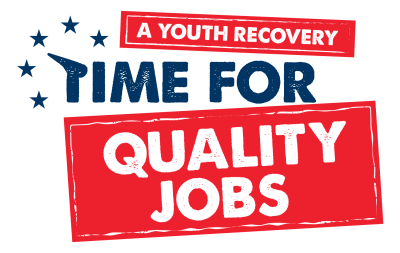
European youth are severely affected by the pandemic. One in six young people lost their job due to the economic consequences of COVID-19. In September 2020, the EU youth unemployment rate was 17.1%. Youth unemployment has soared in several countries, including Spain (40,5%), Italy (29,7%), Bulgaria (18,3%) and France (19,6%).
The COVID-19 crisis has aggravated the situation of young people not in employment, education or training (NEETs). The number, especially in countries like Italy, Greece, Bulgaria and Romania, is on the increase. This includes the most vulnerable people, at a high risk of marginalisation, poverty and permanent disengagement from employment.
The crisis is particularly affecting workers in ‘nonstandard forms of employment’, such as part-time, temporary or ‘gig’ work in which there is a predominance of young people. Often, such work does not qualify for sick leave, unemployment benefits or job protection schemes.
(HOW) WILL EUROPE PREVENT A LOST GENERATION?
In October 2020 the European Council adopted a Recommendation on A Reinforced Youth Guarantee - A Bridge to Jobs. Member States commit to ensure that all young people, under the age of 30, receive a good quality offer for employment, continued education, apprenticeship or traineeship within four months after becoming unemployed or leaving education. It is not clear how many Member States will follow those recommendations.
The European Commission recognises that European youth are one of the hardest hit in the pandemic and calls for social protection systems to offer a safety net to young people. It is not yet clear how much of the €750 billion recovery funds will be invested in youth.
A YOUTH RECOVERY: TIME FOR QUALITY JOBS
ETUC Youth call for
- Social partners and young trade unionists to be involved in the design, monitoring and evaluation of national recovery plans.
Youth structures of trade unions have to be informed and included in the process of shaping European and national recovery plans. The European Commission’s updated guidance to member states’ Recovery and Resilience National Plans require them to carry out a wide consultation including with youth organisations. Transparency must be assured: young people deserve to know how their government is addressing their needs and spending the money.
2. Specific recovery measures for youth and workers in non-standard forms of employment must be developed.
These workers have limited or no access to workers’ rights and social protection, and their jobs are not supported by SURE. This must be addressed in national recovery plans. All workers and young unemployed people should have access to social protection. The unemployed should have a comprehensive safety net, as foreseen by the European Pillar of Social Rights.
3. Quality jobs and decent working conditions be available to all.
Young people have been forced into low quality jobs. We cannot allow this to keep on happening. To prevent precarious conditions, quality standards for all recovery measures must be put in place including traineeships and internships.
We encourage all Member states to develop specific recovery measures to fight youth unemployment and precarious entry in the labour market, and to provide real recovery for all people. The involvement of the youth structures of trade unions and other relevant actors in the process, will ensure that the needs of future generations are considered. The EU Recovery Plan will be an unprecedented investment of public resources for a significant improvement in European prosperity and equity.
Together with the new Youth Guarantee, national recovery plans and the next Action Plan for the implementation on European Pillar of Social Rights, provide a unique opportunity to turn the tide and build a socially just Europe. This opportunity must not be missed. Are European Commission and EU Member States ready to commit to real change?"
